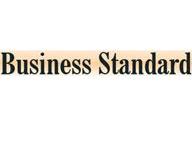School News
—
Stern's Fertitta Veterans Program, made possible by an endowment gift from Lorenzo Fertitta (MBA '93) and Frank J. Fertitta III, is featured
—

Excerpt from Poets & Quants -- "'We’re thrilled to be able to honor men and women of the armed services,' Henry says. 'We believe in producing leaders who can transform the 21st century, and we think veterans embody so many of the characteristics we think are essential.'"
School News
—

Excerpt from Poets & Quants -- "'We’re thrilled to be able to honor men and women of the armed services,' Henry says. 'We believe in producing leaders who can transform the 21st century, and we think veterans embody so many of the characteristics we think are essential.'"
Faculty News
—
Professor Jeffrey Carr shares his views on venture capital firm Village Capital's peer-selection business model
—

Excerpt from OZY -- "Simply because someone started a successful company in a certain industry does not mean that they can replicate that, or that they can identify it in somebody else.'"
Faculty News
—

Excerpt from OZY -- "Simply because someone started a successful company in a certain industry does not mean that they can replicate that, or that they can identify it in somebody else.'"
Faculty News
—
Research Scholar Brandon Fuller's work on migration programs for entrepreneurs is referenced
—

Excerpt from US News & World Report -- "In addition to workers, states could also set up visas for entrepreneurs and smaller-scale investors – categories that don't currently exist in the federal system. Canada and Australia have similar regional migration programs. These programs have created greater population and employment growth, according to Cato Institute research by Brandon Fuller and Sean Rust. And the stakeholders are happy with the results."
Faculty News
—

Excerpt from US News & World Report -- "In addition to workers, states could also set up visas for entrepreneurs and smaller-scale investors – categories that don't currently exist in the federal system. Canada and Australia have similar regional migration programs. These programs have created greater population and employment growth, according to Cato Institute research by Brandon Fuller and Sean Rust. And the stakeholders are happy with the results."
Faculty News
—
Professor David Yermack is interviewed about blockchain's impact on the securities industry
—

Excerpt from Financial Advisor -- "'A lot of financial advisors make their money through relationships with asset management companies. That may be much more difficult to do in the future. The technology will raise questions whether investors need to have investment companies involved at all in executing and settling their trades,' said New York University Stern School of Business Finance Department Chair David Yermack, who gave what may have been the first major presentation to the SEC on blockchain."
Faculty News
—

Excerpt from Financial Advisor -- "'A lot of financial advisors make their money through relationships with asset management companies. That may be much more difficult to do in the future. The technology will raise questions whether investors need to have investment companies involved at all in executing and settling their trades,' said New York University Stern School of Business Finance Department Chair David Yermack, who gave what may have been the first major presentation to the SEC on blockchain."
Press Releases
—
NYU Stern Designs Program Exclusively for U.S. Military MBAs with $15 Million Endowment Gift
—

With Veterans Day approaching, New York University’s Stern School of Business is announcing a $15 million endowment gift from alumnus Lorenzo Fertitta (MBA ’93) and brother Frank J. Fertitta III to create a new program exclusively for U.S. military veteran and active duty students who will be entering the School’s full-time MBA program next year.
Press Releases
—

With Veterans Day approaching, New York University’s Stern School of Business is announcing a $15 million endowment gift from alumnus Lorenzo Fertitta (MBA ’93) and brother Frank J. Fertitta III to create a new program exclusively for U.S. military veteran and active duty students who will be entering the School’s full-time MBA program next year.
Faculty News
—
Professor Jonathan Haidt is quoted on the Democratic convention slogan and messaging
—

Excerpt from The Atlantic -- "When the Democrats adopted 'We are stronger together' as a convention slogan, Haidt observes, it was almost as if they were heeding the advice of scholars like Stenner to suppress intolerance by celebrating sameness. In Haidt’s telling, the convention’s most successful moment was when Khizr Khan stood onstage with his wife, brandishing a pocket Constitution and declaring, 'We are honored to stand here as the parents of Captain Humayun Khan, and as patriotic American Muslims with undivided loyalty to our country.'"
Faculty News
—

Excerpt from The Atlantic -- "When the Democrats adopted 'We are stronger together' as a convention slogan, Haidt observes, it was almost as if they were heeding the advice of scholars like Stenner to suppress intolerance by celebrating sameness. In Haidt’s telling, the convention’s most successful moment was when Khizr Khan stood onstage with his wife, brandishing a pocket Constitution and declaring, 'We are honored to stand here as the parents of Captain Humayun Khan, and as patriotic American Muslims with undivided loyalty to our country.'"
School News
—
MBA students from Stern's class of 2018 are profiled; Isser Gallogly, Associate Dean, MBA Admissions and Program Innovation, is quoted
—

Excerpt from Poets & Quants -- "'Individually, they represent a diverse set of professional backgrounds, cultures and experiences,' he notes. 'Collectively, they are a high-potential group with a passion for Stern and strong "IQ plus EQ."'"
School News
—

Excerpt from Poets & Quants -- "'Individually, they represent a diverse set of professional backgrounds, cultures and experiences,' he notes. 'Collectively, they are a high-potential group with a passion for Stern and strong "IQ plus EQ."'"
Faculty News
—
Professor Robert Salomon's book, "Global Vision," is named one of the "Best Business Books of 2016" by strategy + business
—

Excerpt from strategy + business -- "Instead of looking to the best practices of the Fortune 500, Salomon seeks salvation in data. The ease or difficulty of doing business in another country isn’t determined only by the norms and culture of that country; it’s also determined by the ease or difficulty of doing business that you’re accustomed to in your home country. Salomon believes it is possible to measure and express as a number such differences as the 'institutional distance.' And, he continues, 'studies show a positive correlation between institutional distance and the level of risk in doing business across countries.' When crafting a global strategy, he argues, executives would be well advised to calculate that distance."
Faculty News
—

Excerpt from strategy + business -- "Instead of looking to the best practices of the Fortune 500, Salomon seeks salvation in data. The ease or difficulty of doing business in another country isn’t determined only by the norms and culture of that country; it’s also determined by the ease or difficulty of doing business that you’re accustomed to in your home country. Salomon believes it is possible to measure and express as a number such differences as the 'institutional distance.' And, he continues, 'studies show a positive correlation between institutional distance and the level of risk in doing business across countries.' When crafting a global strategy, he argues, executives would be well advised to calculate that distance."
School News
—
Stern's Mindfulness in Business initiative is highlighted; Connie Kim, Director of Leadership Development, is interviewed
—

Excerpt from TopMBA -- "Mindfulness practice can support us in this line of inquiry. It can help us ask the tough questions that can then lead to wiser decisions and actions, says Connie Kim, director of NYU Stern’s Leadership in Development program, which teaches mindfulness to full-time and executive MBA."
School News
—

Excerpt from TopMBA -- "Mindfulness practice can support us in this line of inquiry. It can help us ask the tough questions that can then lead to wiser decisions and actions, says Connie Kim, director of NYU Stern’s Leadership in Development program, which teaches mindfulness to full-time and executive MBA."
Research Center Events
—
Executive Education Short Course: Disruptive Leadership: Fostering a Culture of Game-Changing Innovation
—

This program is intended for those who wish to rethink the habits that have made them successful in the past, and challenge the conventional wisdom and industry models that have defined their businesses. To achieve these objectives, this course combines presentations and discussions with practical exercises so that participants can apply disruptive leadership principles to business issues and scenarios.
Research Center Events
—

This program is intended for those who wish to rethink the habits that have made them successful in the past, and challenge the conventional wisdom and industry models that have defined their businesses. To achieve these objectives, this course combines presentations and discussions with practical exercises so that participants can apply disruptive leadership principles to business issues and scenarios.
Faculty News
—
Professor Robert Salomon weighs in on the future of the telecom industry in light of AT&T's acquisition of Time Warner
—

Excerpt from Xinhua -- “‘Gone are the days when consumers just observe content over television screens, but now they are consuming content over mobile, over computers, and other devices,’ said Robert Salomon, associate professor of New York University's Stern School of Business.”
Faculty News
—

Excerpt from Xinhua -- “‘Gone are the days when consumers just observe content over television screens, but now they are consuming content over mobile, over computers, and other devices,’ said Robert Salomon, associate professor of New York University's Stern School of Business.”
Faculty News
—
Professor Arun Sundararajan argues that Airbnb has a strong case against New York State in challenging its new restrictions
—

Excerpt from The Economist -- "The firm has a good case, reckons Mr Sundararajan. Firms such as YouTube and Facebook have already invoked such a defence successfully."
Faculty News
—

Excerpt from The Economist -- "The firm has a good case, reckons Mr Sundararajan. Firms such as YouTube and Facebook have already invoked such a defence successfully."
Faculty News
—
Professor Tensie Whelan comments on Elon Musk’s strategy for developing a broad range of consumer sustainability solutions
—

Excerpt from The Huffington Post -- "'The allure that this guy has for sparking the imagination of people, he does bring a certain panache to this for sure,' Tensie Whelan, director of New York University’s Stern Center for Sustainable Business, told HuffPost ahead of the announcement. 'How he thinks in systems is really interesting ― connecting the roof, the battery and the car. That broader, fully integrated solution is a smart way to go.'"
Faculty News
—

Excerpt from The Huffington Post -- "'The allure that this guy has for sparking the imagination of people, he does bring a certain panache to this for sure,' Tensie Whelan, director of New York University’s Stern Center for Sustainable Business, told HuffPost ahead of the announcement. 'How he thinks in systems is really interesting ― connecting the roof, the battery and the car. That broader, fully integrated solution is a smart way to go.'"
Faculty News
—
In an in-depth interview, Professor Aswath Damodaran discusses valuation, data and investing
—

Excerpt from Bloomberg -- "I think the first thing investors have to be asking is whether they should be doing a valuation in the first place. Because valuation requires two things: One is it requires the willingness to learn the basic tools, and many investors want to do the valuation but they don't want to learn about accounting. They want to do valuation but they don't want to learn about present value. They want to do valuation but they don't want to understand the basics that drive risk and return. And that's lazy. It's lazy and it leads to you spending a lot of time thinking you're valuing companies and you walk away with actually nothing to show for it."
Faculty News
—

Excerpt from Bloomberg -- "I think the first thing investors have to be asking is whether they should be doing a valuation in the first place. Because valuation requires two things: One is it requires the willingness to learn the basic tools, and many investors want to do the valuation but they don't want to learn about accounting. They want to do valuation but they don't want to learn about present value. They want to do valuation but they don't want to understand the basics that drive risk and return. And that's lazy. It's lazy and it leads to you spending a lot of time thinking you're valuing companies and you walk away with actually nothing to show for it."
Faculty News
—
NYU Global Research Professor Ian Bremmer discusses the FBI reopening its inquiry into Hillary Clinton's use of private e-mail
—

Excerpt from Bloomberg -- “I doubt [James Comey] had much of a choice. First of all, the fact that he’s aware of e-mails that would have materially contradicted the testimony that he gave in the investigation in Congress requires him to make that disclosure. Not only would it be politically delegitimizing for him and the FBI to hold on to it beyond the elections, if they eventually found out about it, but frankly with that kind of information it’s pretty likely that it would have leaked from within the FBI very soon anyway.”
Faculty News
—

Excerpt from Bloomberg -- “I doubt [James Comey] had much of a choice. First of all, the fact that he’s aware of e-mails that would have materially contradicted the testimony that he gave in the investigation in Congress requires him to make that disclosure. Not only would it be politically delegitimizing for him and the FBI to hold on to it beyond the elections, if they eventually found out about it, but frankly with that kind of information it’s pretty likely that it would have leaked from within the FBI very soon anyway.”
Faculty News
—
Professor Claudine Gartenberg's joint research on company performance and Professor Thomas Philippon's joint research on volatility is referenced
—

Excerpt from Bloomberg View -- "In the 2000s, a series of academic papers showed that corporate America had become a much less comfortable place for incumbents. Lots of people in corporate America already knew this, but it was helpful to see peer-reviewed evidence: L.G. Thomas and Richard D’Aveni found big increases in profit volatility among manufacturing companies from 1950 to 2002. Diego Comin and Thomas Philippon found a similar increase in the volatility of sales growth and other metrics. ... This summer, though, Victor Manuel Bennett and Claudine Madras Gartenberg, professors at Duke University’s Fuqua School of Business and New York University’s Stern School of Business respectively, did something interesting. They took the volatility measures from the above papers and a few others, added some of their own, and updated them all."
Faculty News
—

Excerpt from Bloomberg View -- "In the 2000s, a series of academic papers showed that corporate America had become a much less comfortable place for incumbents. Lots of people in corporate America already knew this, but it was helpful to see peer-reviewed evidence: L.G. Thomas and Richard D’Aveni found big increases in profit volatility among manufacturing companies from 1950 to 2002. Diego Comin and Thomas Philippon found a similar increase in the volatility of sales growth and other metrics. ... This summer, though, Victor Manuel Bennett and Claudine Madras Gartenberg, professors at Duke University’s Fuqua School of Business and New York University’s Stern School of Business respectively, did something interesting. They took the volatility measures from the above papers and a few others, added some of their own, and updated them all."
Student Club Events
—
2016 Stern Healthcare Association Conference
—

On Friday, October 28, the Stern Healthcare Association (SHA) will host its annual conference, themed "The Changing Face of Healthcare."
Student Club Events
—

On Friday, October 28, the Stern Healthcare Association (SHA) will host its annual conference, themed "The Changing Face of Healthcare."
School News
—
NYU Stern’s MS in Business Analytics Program Hosts Executive Education Days at NYU Shanghai & the London School of Economics
—

NYU Stern’s MS in Business Analytics program hosted an Executive Education Day at NYU Shanghai, integrating local and regional expertise into students’ academic development.
School News
—

NYU Stern’s MS in Business Analytics program hosted an Executive Education Day at NYU Shanghai, integrating local and regional expertise into students’ academic development.
Faculty News
—
Research Scholar Sarah Labowitz is interviewed about the current factory labor conditions in Bangladesh
—

Excerpt from Bloomberg -- "'You can’t on the one hand have lower prices and on the other hand have rising standards,' says Sarah Labowitz, a co-director of New York University’s Stern Center for Business and Human Rights."
Faculty News
—

Excerpt from Bloomberg -- "'You can’t on the one hand have lower prices and on the other hand have rising standards,' says Sarah Labowitz, a co-director of New York University’s Stern Center for Business and Human Rights."
Faculty News
—
Professor Anindya Ghose explains Twitter's recent announcements and its role in social media
—

Excerpt from The San Francisco Chronicle -- "'It does have a very powerful niche, and it’s a distinct player in that niche,' said Anindya Ghose, a professor of information technology and marketing at New York University’s Stern School of Business. 'Live (video) is a potential game changer that actually put Twitter ahead of the curve. ... TV is finally everywhere, and this plays into that larger ecosystem and gives them some good numbers to bank on.'"
Faculty News
—

Excerpt from The San Francisco Chronicle -- "'It does have a very powerful niche, and it’s a distinct player in that niche,' said Anindya Ghose, a professor of information technology and marketing at New York University’s Stern School of Business. 'Live (video) is a potential game changer that actually put Twitter ahead of the curve. ... TV is finally everywhere, and this plays into that larger ecosystem and gives them some good numbers to bank on.'"
Faculty News
—
Professor Scott Galloway comments on Twitter shutting down Vine
—

Excerpt from The Wall Street Journal -- "'If Vine was housed inside a company that was growing at 30% a year…it would have survived,' said Scott Galloway, founder of consumer-brand research firm L2 Inc. and a marketing professor at New York University. For Twitter, 'not growing its user base, a part-time CEO and disgruntled investors—all of that adds up to forced focus.'"
Faculty News
—

Excerpt from The Wall Street Journal -- "'If Vine was housed inside a company that was growing at 30% a year…it would have survived,' said Scott Galloway, founder of consumer-brand research firm L2 Inc. and a marketing professor at New York University. For Twitter, 'not growing its user base, a part-time CEO and disgruntled investors—all of that adds up to forced focus.'"
Faculty News
—
Professor Yair Berson's joint research how school prinicipals' outlooks impact the childrens’ environment is featured
—

Excerpt from the Business Standard -- "'Our findings show that schools contribute to the formation of children's values,' said Yair Berson from New York University and Shaul Oreg from Cornell University in the US."
Faculty News
—

Excerpt from the Business Standard -- "'Our findings show that schools contribute to the formation of children's values,' said Yair Berson from New York University and Shaul Oreg from Cornell University in the US."
Faculty News
—
Professor Arun Sundararajan discusses Uber's Independent Drivers Guild
—

Excerpt from Bloomberg -- "The IDG isn’t a traditional union. Drivers didn’t vote for it. It has no formal collective-bargaining rights. And its very existence helps the company resist formal unionization, says Arun Sundararajan, a business professor at New York University who researches the economics of the tech industry. 'This is just them planting something in the ground that might deter more contentious forms of labor organizing,' he says."
Faculty News
—

Excerpt from Bloomberg -- "The IDG isn’t a traditional union. Drivers didn’t vote for it. It has no formal collective-bargaining rights. And its very existence helps the company resist formal unionization, says Arun Sundararajan, a business professor at New York University who researches the economics of the tech industry. 'This is just them planting something in the ground that might deter more contentious forms of labor organizing,' he says."
Faculty News
—
Professor Arun Sundararajan comments on New York's restrictions on Airbnb rentals
—

Excerpt from Marketplace -- "We're mixing up what is a serious issue which is a lack of affordable housing in New York with Airbnb hosting where there's really no evidence that Airbnb hosting has any impact that is measurable on the supply of short-term rentals."
Faculty News
—

Excerpt from Marketplace -- "We're mixing up what is a serious issue which is a lack of affordable housing in New York with Airbnb hosting where there's really no evidence that Airbnb hosting has any impact that is measurable on the supply of short-term rentals."

